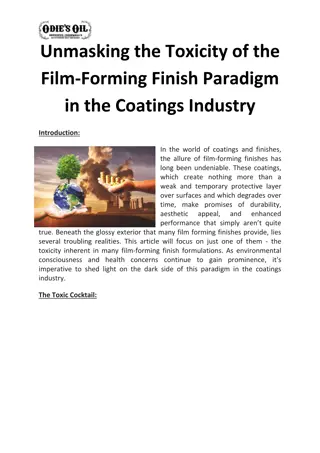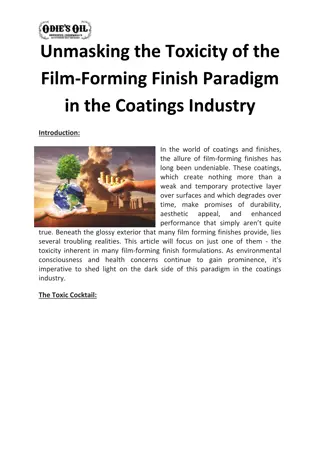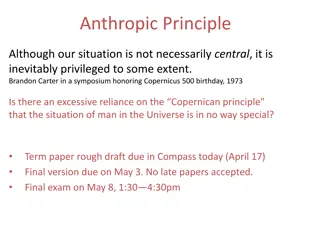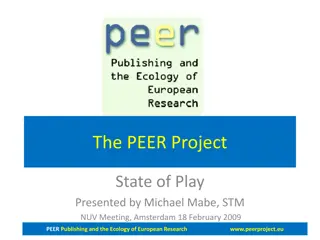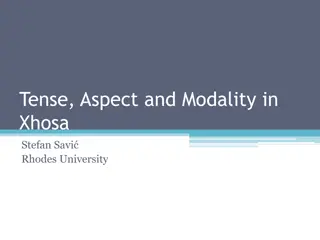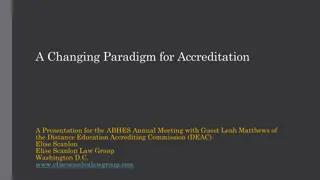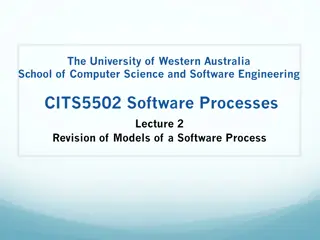New Paradigm in Education and University Consortiums
WUC, a non-profit university consortium, aims to bring together stakeholders to address global challenges. By organizing large-scale action research, it seeks to develop sustainable solutions and advance world-class research and education. The focus is on creating effective understanding and solutions for societal issues, fostering a sustainable global society by re-examining economic, political, human, social, and cultural dynamics.
Download Presentation

Please find below an Image/Link to download the presentation.
The content on the website is provided AS IS for your information and personal use only. It may not be sold, licensed, or shared on other websites without obtaining consent from the author.If you encounter any issues during the download, it is possible that the publisher has removed the file from their server.
You are allowed to download the files provided on this website for personal or commercial use, subject to the condition that they are used lawfully. All files are the property of their respective owners.
The content on the website is provided AS IS for your information and personal use only. It may not be sold, licensed, or shared on other websites without obtaining consent from the author.
E N D
Presentation Transcript
Psychology 4910 Chapter 10 Gestalt Psychology and the Social Field
Introduction Concept of Gestalt introduced by Goethe Gestalt psychologists: There are many important phenomena whose characteristic properties cannot be reduced to the sum of their parts Our perception cannot be reduced to sensations Our behaviour cannot be reduced to muscle movements
Introduction Saw introspection and behaviourism as missing the thing that matters Thought the bottom-up approach to understanding phenomena is doomed to fail Appreciate any psychological phenomena as an integrated whole Science is about trying to understand and appreciate order in nature
Max Wertheimer (1880-1943) Considered to be the founder of Gestalt psychology University of Frankfurt phi phenomenon
Phi Phenomenon Demonstration: Two lights, turned on alternately by a switch Each light casts a different shadow on the screen At right rate of alternation, participant sees one shadow moving back and forth (rather than two) Showed that: Apparent motion is not a result of inference Our perception is not just a copy of the stimulus
The Minimum Principle We do not perceive what is actually in the external world We organize our experience so that it is as simple as possible Simplicity guides our perception; may even override previous experience e.g., phi phenomenon
Precursors of Gestalt Psychology Christian von Ehrenfels (1859 1932) Experiences should be understood as composed of individual sensations + a Gestalt quality that provided the form of the experience Immanuel Kant Our experience is a construction; we impose cause-and-effect relationships on the world
Precursors of Gestalt Psychology Phenomenology Describe consciousness as it presents itself, without trying to decipher its function
The Laws of Perceptual Organization Intended to describe the basic ways in which we organize our experience as simply as possible
Productive Thinking Improper teaching methods lead to: Rote memorization Poor transfer between situations Good teaching methods lead to: Deeper understanding of problem structure Ability to grasp the Gestalt of the problem Structurally blind teaching methods teach principles that generalize
Wolfgang Khler (1887-1967) Marooned on Tenerife, in the Canary Islands, during WWI Studied chimpanzees on the island Resigned from Psychological Institute at University of Berlin after Nazi rise to power Gave caricature of Nazi salute in a 1933 lecture (salute was required by law) Explained that he did not agree with Nazi ideology
Wolfgang Khler (1887-1967) Wrote Mentality of Apes . Concerned with testing the intelligence of the higher apes . . . whether they do not behave with intelligence and insight under conditions which require such behavior Insight: Ability to understand how different parts of a situation are related to one another Insightful problem-solving was all-or- none phenomenon; the animal saw the solution or it did not
The Concept of Isomorphism Isomorphism: Novel approach to relation between experience and the brain Variant of psychophysical parallelism Correspondence between events in the brain and events in the mind is structural Changes in structure of brain processes should result in corresponding changes in structure of experience e.g., studies using a Necker cube
Kurt Koffka (1886-1941) Studied for one year at University of Edinburgh Made connections with English- speaking people Laid foundation for international recognition Completed studies at University of Berlin Wrote the Bible of Gestalt psychology
Kurt Koffka (1886-1941) Wrote Principles of Gestalt Psychology. Geographic environment: Environment as it actually is Behavioural environment: Environment that actually determines our behaviour Contains a person s phenomenal world of lived experience It s only when geographic environment enters behavioural environment that one is affected
Why Do Things Look as They Do? Distal stimuli: Things as they exist in geographic environment Proximal stimuli: Effects that distal stimuli have on the surface of a receptor organ Perceptual constancies: Our perception of properties of objects remains the same, even though proximal stimulus may change
The Growth of the Mind Gestalt psychologists incorrectly accused of being nativists Gestalt laws appear innately determined rather than learned Gestalt psychologists view Gestalt laws of organization as necessary consequence of physical laws Minimum principle is a physical law, not innate or learned
Kurt Lewin (1890-1947) 1910: University of Berlin PhD: Psychological Institute Influenced by Gestalt psychologists Influenced by Ernst Cassirer Believed that people represent their experience by means of symbolic forms 1933 35: Worked at Cornell University 1935 44: Worked at University of Iowa 1944: Director of Research Center for Group Dynamics at MIT
Kurt Lewin (1890-1947) Wanted to create practical psychology which balanced individual and social influences Field: All the forces acting on an individual at a particular time Life space: Psychological field we are interested in B = f (P, E) B = behaviour of an individual at a certain moment P = person E = environment
Group Dynamics Action research: Program of research designed to gather data and lead to social change Lewin s studies in group dynamics Change in group dynamics will change the way an individual perceives and acts e.g., sensitivity training experiments (T-groups) Opportunity to see yourself as others see you Aimed to combat racial and religious prejudice
Leon Festinger (1919-1989) Looked at cognitive dissonance. Experiment: Participants spent one hour doing boring tasks Asked to tell the next participant (a confederate) that the tasks had been really interesting One group offered $1 for lying; another, $20 Those who received $1 rated the experiment more interesting than those who received $20 Explained by dissonance reduction
Solomon Asch (1907-1996) Did work on conformity. Experiment Groups of 7 9 men (all but 1 were confederates) Groups presented with a series of line judgment tasks Confederates made incorrect judgments Results: Participants conformed to confederates in 37% of trials
Stanley Milgram (1933-1984) Worked on studies of obedience while at Yale. Participants to give a test to another person (confederate) Participants to deliver electric shock to this person whenever they produced a wrong response Increasingly strong shocks with each wrong answer Results: 26 of 40 participants delivered shocks until the end of the scale
Stanley Milgram (1933-1984) Profound impact on field of psychology Could not be conducted under modern ethical guidelines Current studies on obedience may be lacking in realism and validity
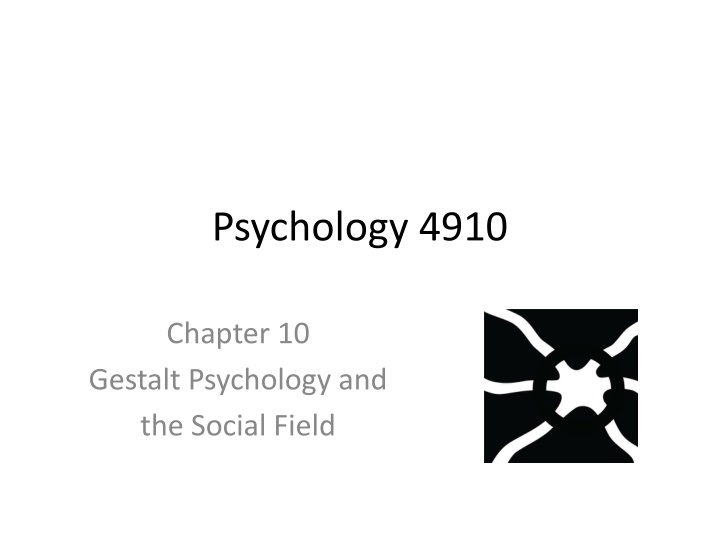

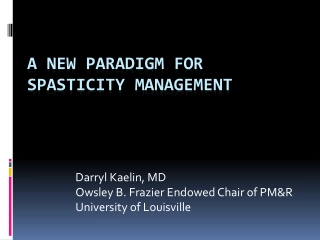
![[PDF⚡READ❤ONLINE] Black Hole Astrophysics: The Engine Paradigm (Springer Praxis](/thumb/21503/pdf-read-online-black-hole-astrophysics-the-engine-paradigm-springer-praxis.jpg)

